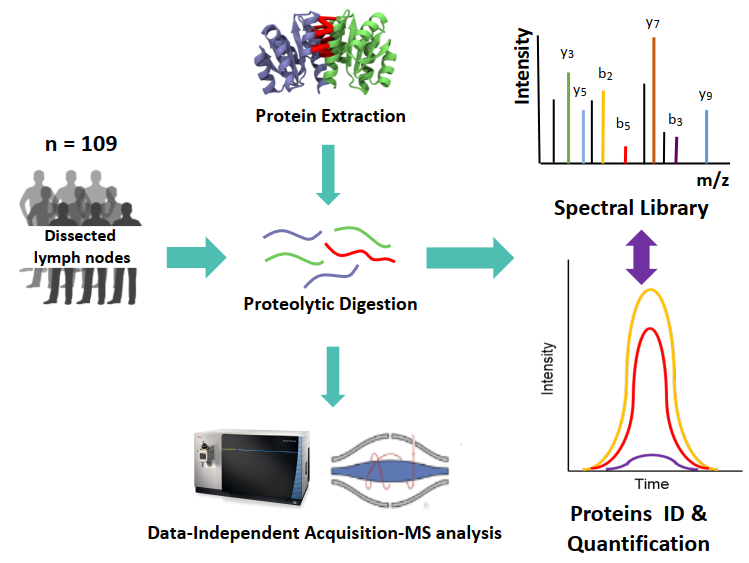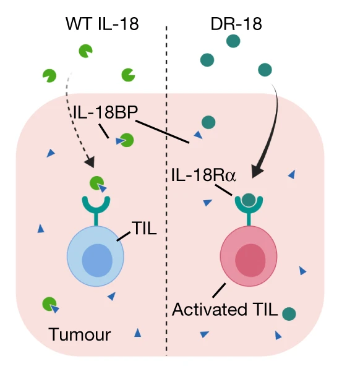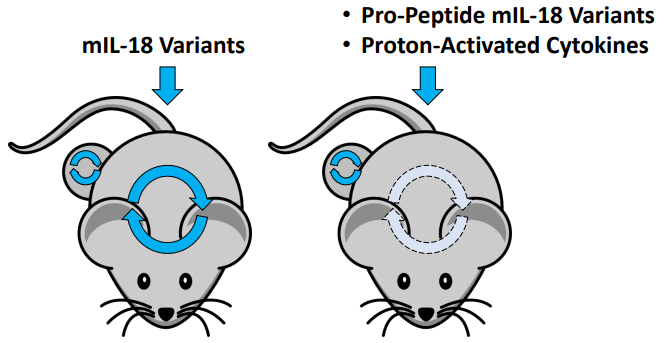Undergraduate (SJTU, Yale, UChicago)
SJTU Zhiyuan College Roster
I obtained my Bachelor of Science Degree at Shanghai Jiao Tong University (Bioscience, Zhiyuan Honors Program) in 2019. At Shanghai Center for Systems Biology, I led a proteomic project on identification of lymphoma classifiers via mass spectrometry.
Moreover, I spent my fourth year as a visiting student at Yale University Department of Immunobiology modulating the immunotherapeutic efficacy of Interleukin-18 by protein engineering.
__________________________________________________
Clinical Proteomics Analysis using Data Independent Acquisition-Mass Spectrometry Identified Classifiers for Molecular Characterization of Lymphoma
Undergraduate Research Fellow, Yan Lab, Shanghai Center for Systems Biomedicine, Shanghai Jiao Tong University, 9/2016-7/2018
Summary: We performed a biomarker-discovery proteomics study on lymphoma by utilizing quantitative tandem mass spectrometry technology. I led this project as a co-first author (Manuscript URL).
Research Description: Development of molecular classifiers of lymphoma will provide potential biomarkers for studying the pathogenesis of lymphoma and a complementary tool for accurate clinical diagnosis and precision medicine practice. In this study, we conducted a proteomics analysis via Data Independent Acquisition mass spectrometry method on 109 lymph node samples from clinical patients, covering a comprehensive suite of lymphoma subtypes including B-NHL, T-NHL, HL, Lymphadenitis, Tumor metastatic lymph node, and Non-neoplastic lymph node. We generated a lymphoma-associated proteomic profiling data resource, quantified and validated significant classifiers of different disease subgroups, and provided classifiers correlating with the aggressive and prognostic characteristics of lymphoma.
Key Words: Lymphoma; Clinical Proteomics; Omics; Biomarker

__________________________________________________
Immunotherapy by Decoy-Resistant Interleukin-18 (DR-18)
Visiting Undergraduate, Ring Lab, Department of Immunobiology, Yale University School of Medicine, 7/2018-4/2019
Summary: Zhou et al. (Nature 2020) showed that IL-18BP, a high-affinity IL-18 decoy receptor, is frequently upregulated in diverse human and mouse tumours and limits the anti-tumour activity of IL-18 in mice. At Ring Lab, I participated experiments involved in this study. Using directed evolution, we engineered a ‘decoy-resistant’ IL-18 (DR-18) which showed promising immunotherapeutic efficacy.

Visiting Undergraduate, Ring Lab, Department of Immunobiology, Yale University School of Medicine, 7/2018-4/2019
Summary: This is my independent thesis research at Ring Lab, in which we aimed to further improve the tumor-targeting specificity of DR-18, balancing its therapeutic efficacy and potential toxicity. See my dissertation here.
Research Description: Here, we proposed two assays, pro-peptide assay and pH-sensitive assay: the former assay leveraged the unique property of IL-18 that processing of its precursor peptide is required for its maturation. The latter assay harnessed the extracellular acidity of tumor and aimed to construct a low-pH favorable variant. Both assays were developed and evaluated in vitro, ex vivo, and in vivo.
Key Words: Interleukin-18; Precursor Peptide; pH sensitivity; Immunotherapy

__________________________________________________
Detecting Positively Selected Genes among Mammalian Species Using Phylogenetic Analysis of Maximum Likelihood
Study Tour, Long Lab, Department of Ecology and Evolution, The University of Chicago, 6/2017-8/2017
Research Description: The birth of new novel genes plays an essential role in understanding and elaborating the evolution of genetic systems. Here, we used phylogenetic analysis to discover positively selected genes among mammalian species.
Key Words: Evolution; Polygenetic analysis
